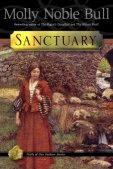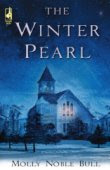Fiction Writing 101: Lesson #5
Scenes and How to Find Them In Novels
by Molly Noble Bull
www.mollynoblebull.com
Whether a scene contains dialogue or is a pure action scene where nobody talks, a scene must contain the three elements listed below to be a scene at all. If a paragraph or a group of paragraphs does not contain the three elements, it is not a scene but what we call an incident. To be able to identify a scene when you see one, you must first know the three elements that all scenes must have.
Review: What are the elements of a scene?
Goal
Conflict
Disaster
Goals Defined:
A scene goal is whatever the main character in that scene wants to have or to accomplish. Dwight Swain says that well thought-out goals are something physical that you can take a picture of with a camera.
For example, you can take a picture of a plate with Mexican food on it. But you can’t take a picture of being hungry. So, the character goal in this scene must include the main character’s desire for Mom’s Mexican food.
A goal like that might be written this way.
Jim could practically smell as well as taste tacos, Spanish rice and refried beans as he hurried down the concrete steps of the school building. Today was Tuesday, and Mom always cooked Mexican food on Tuesday night.
From this, we can conclude that Jim’s goal is a plate of Mexican food for supper.
Other Examples :
A goal for one character in a scene might be to reach home safely during a thunderstorm.
The goal in another scene might be to steal a cookie from a cookie jar.
The goal of a young girl might be to become a cheerleader.
For a boy, a goal might be to make the football team or win first place at the science fair.
Conflict Defined:
In a novel, conflict is the element that keeps the main character from reaching his or her goal, and this element can be a person, an animal, an object or a situation.
Here is an example of a story conflict:
Goal: Jim could practically smell as well as taste tacos, Spanish rice and refried beans as he hurried down the concrete steps of the school building. Today was Tuesday, and Mom always cooked Mexican food on Tuesday night.
Conflict: But when he arrived home, he saw his mother in the car and driving away. She didn’t even see him.
From this narrative, you can see that Jim might not reach his goal of a Mexican supper because there is a conflict. Mom is driving away instead of in the kitchen cooking Mexican food.
Disaster Defined:
In a scene, the disaster proves that the main character was unable to resolve the conflict and was therefore unable to reach his or her scene goal, and to be a scene at all, every scene must end in disaster for the main character. However, not all scene disasters include a death, a hurricane or the bad guys killing the good guys. A disaster for the main character would merely mean that he or she didn’t reach his or her scene goal.
Example of a scene outline:
Goal: Mexican food for supper
Jim could practically smell as well as taste tacos, Spanish rice and refried beans as he hurried down the concrete steps of the school building. Today was Tuesday, and Mom always cooked Mexican food on Tuesday night.
Conflict: Mom is driving away
But when he arrived home, he saw his mother in the car and driving away. She didn’t even see him.
Maybe she forgot some of the fixings and went to the store to buy them, he thought.
Jim went into the house and headed straight for the kitchen, hoping to smell spicy food cooking.
Disaster: He will be eating tuna fish for supper
Instead, he found a note from his mom on the cabinet and propped up against the sugar bowl. The note stated that Mom had a school board meeting that night and that she’d almost forgotten about it. She left milk and a tune salad sandwich in the refrigerator for Jim’s supper.
Jim didn’t reach his goal of a Mexican supper; so for him, this was a disaster.
What I wrote above was incomplete. It was a scene outline. The finished produce might include what happened on the school steps and what happened on his way home from school. It could include dialogues.
Example:
“Hey Jim,” his friend Monty called. “Want to go over to my house and throw a few? I got a new football for my birthday, and I’ve been wanting to try it out.”
“Thanks. But I gotta get home. We’re having Mexican food tonight.”
Homework: Write one sentence for each as I did above—scene, conflict, disaster. Using your three sentences as an outline, write a scene or a short story that contains all three elements.
Molly Noble Bull
Tuesday, March 11, 2008
Subscribe to:
Post Comments (Atom)



No comments:
Post a Comment